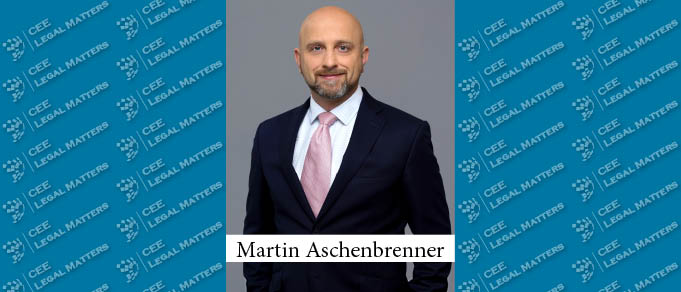The ongoing lockdown and changing restrictions as well as prices surging as a consequence of growing inflation are hitting the Czech economy hard, but the country is holding on mightily, according to PRK Partners Partner Martin Aschenbrenner.
“Europe has been trying to soldier on in spite of restrictions and lockdowns on the account of the pandemic, and the Czech Republic is no different,” Aschenbrenner says. “We have all learned to live with that reality, but we are still bracing to see all of the economic blowback that it carries with it.”
The Czech economy, much like other European economies, is experiencing strong inflation. “The Czech central bank has started raising interest rates aggressively late last year, and it continues doing so in 2022 as well,” Aschenbrenner reports. “While the inflation rate has been substantial – on par with the euro and dollar – the central bank has been quick to act.” He says that this trend will have significant implications for the wider economy, but that it is still difficult to predict exactly which.
“Also, the active chair of the National Bank will be stepping down soon, following two terms in office,” Aschenbrenner says. “A new chair will be appointed and it will be interesting to see how that manifests itself on all of the bank policies.”
On the business side, Aschenbrenner reports that things are working well. “I’d say that businesses seem to be doing fine but, at the same time, they are obviously adapting to the inflation and rising prices. The cost of finance has gone up as well, so they’re dealing with that too,” he says. “Apart from all of that, and the supply chain hurdles and issues, the economy seems to be rolling along quite well, from our perspective.”
Amidst all of this, the Czech Republic is also experiencing ongoing legislative changes. “An ongoing ordeal is the substantial overhaul of the construction code,” Aschenbrenner says. “The purpose of the amendments is to help developers by expediting the road to a building permit – at present, it is a long and complicated process.”
The construction code changes have been an ongoing matter for some time now. “We have had a governmental change last October, following the general elections in which the opposition took the win,” Aschenbrenner reports. “While this change has been taken well by the wider business community, the new government has a somewhat differing view to the old one over what needs to be done with the construction code,” he says. For this reason, Aschenbrenner feels that the much-needed changes are still “likely to drag on for some more months, in 2022.”
Finally, analyzing the most active sectors driving the economy, Aschenbrenner outlines a few. “Of course, the IT sector and digital services are quite strong, but agriculture and manufacturing also seem to be doing great,” he says. “The sectors that have been hit hard and are still struggling are tourism, transport, and the wider hospitality industry.” Aschenbrenner reports that Prague has been particularly affected. “In normal times, Prague enjoys substantial tourist inflows which benefit the economy overall. With the pandemic still ongoing, the consequences are still felt country-wide.”
